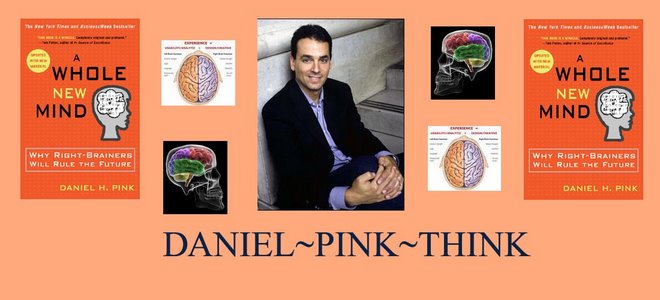on Daniel Pink’s book, A Whole New Mind,
Chapter Seven: “Empathy”
Lisa Macke of Cumberland University’s Counseling Center lead the group discussion of Chapter Seven on “Empathy.”
She began by asking what part of the chapter left the biggest impression. One person commented on the contagious nature of yawning. Another commented on the study conducted on facial expressions and how the eyes can help reveal if someone is being sincere. The study found that facial expressions are universal and: “That seven basic human emotions have clear facial signs; anger, sadness, fear, surprise, disgust, and contempt, and happiness.”
Health care was an area discussed concerning the author’s assertion that this is a field in which empathy is needed and most desired. We discussed the inherent nature of empathy in the caring professions and went on to consider whether or not this is a skill that could be taught. The group agreed that scientific knowledge and an empathic nature are needed in the medical professions to be most effective in the healing process.
Lisa stressed the need to communicate empathy and noted that there are four elements of communication: reading, writing, speaking, and listening. Education has done a poor job of teaching listening skills which is the most important skill for understanding the view points of others and being empathic.
There was a discussion about some professions, such as law enforcement, that needed to guard against being empathetic. The professors found it hard to be empathetic, nor sympathetic with students who do not turn in their work for various reasons. They can empathize with the situation, but they see it as a consequence of the student’s actions. Some students’ requests for leniency are a way for them to test the limits of authority. Many of them have been sheltered and over protected and have not always had to deal directly with challenging situations.
People who do not display empathy do not usually have a solid background of human attachment. They may have been in foster care or other situations where attachments were not formed. Empathy requires human connection.
Lisa reviewed another study which found that social skills, more than test scores, were better indicators of future earnings. People with good social skills do better at navigating social settings and can relate well to peers. They are able to find something that they agree upon even if just 1%, to relate with another person and seek understanding.
The group talked about past business/career publications such as Steven Covey’s Seven Habits of Highly Effective People which has a chapter on empathic communication and recommends: ‘Seek first to understand . . . .” This theme has been covered before and a Whole New Mind reiterates it for a new generation.
She began by asking what part of the chapter left the biggest impression. One person commented on the contagious nature of yawning. Another commented on the study conducted on facial expressions and how the eyes can help reveal if someone is being sincere. The study found that facial expressions are universal and: “That seven basic human emotions have clear facial signs; anger, sadness, fear, surprise, disgust, and contempt, and happiness.”
Health care was an area discussed concerning the author’s assertion that this is a field in which empathy is needed and most desired. We discussed the inherent nature of empathy in the caring professions and went on to consider whether or not this is a skill that could be taught. The group agreed that scientific knowledge and an empathic nature are needed in the medical professions to be most effective in the healing process.
Lisa stressed the need to communicate empathy and noted that there are four elements of communication: reading, writing, speaking, and listening. Education has done a poor job of teaching listening skills which is the most important skill for understanding the view points of others and being empathic.
There was a discussion about some professions, such as law enforcement, that needed to guard against being empathetic. The professors found it hard to be empathetic, nor sympathetic with students who do not turn in their work for various reasons. They can empathize with the situation, but they see it as a consequence of the student’s actions. Some students’ requests for leniency are a way for them to test the limits of authority. Many of them have been sheltered and over protected and have not always had to deal directly with challenging situations.
People who do not display empathy do not usually have a solid background of human attachment. They may have been in foster care or other situations where attachments were not formed. Empathy requires human connection.
Lisa reviewed another study which found that social skills, more than test scores, were better indicators of future earnings. People with good social skills do better at navigating social settings and can relate well to peers. They are able to find something that they agree upon even if just 1%, to relate with another person and seek understanding.
The group talked about past business/career publications such as Steven Covey’s Seven Habits of Highly Effective People which has a chapter on empathic communication and recommends: ‘Seek first to understand . . . .” This theme has been covered before and a Whole New Mind reiterates it for a new generation.




No comments:
Post a Comment